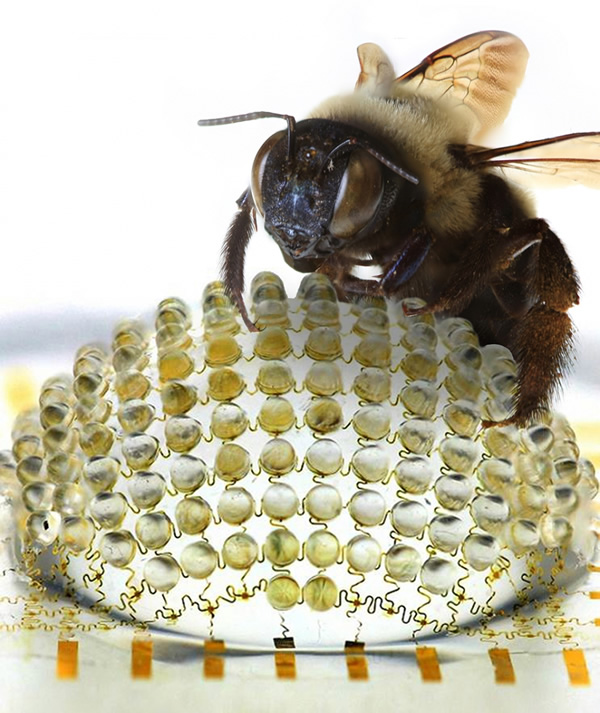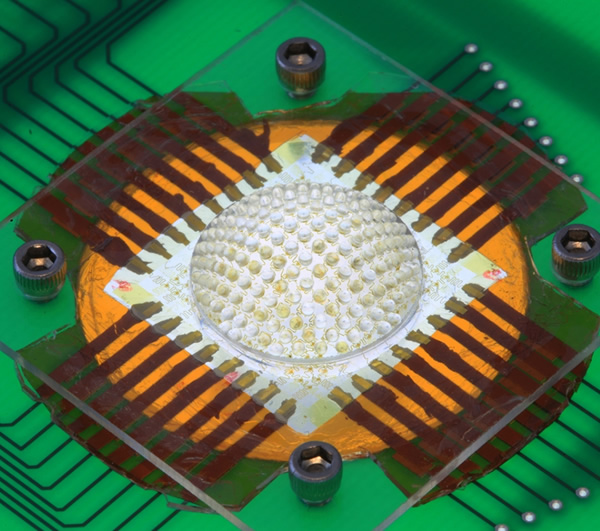If one lens is good, then hundreds have got to be better! A team of researchers
have created the world's first digital camera that mimic the compound
eyes of bugs:
Taking cues from Mother Nature, the cameras exploit large arrays of
tiny focusing lenses and miniaturized detectors in hemispherical layouts,
just like eyes found in arthropods. The devices combine soft, rubbery
optics with high performance silicon electronics and detectors, using
ideas first established in research on skin and brain monitoring systems
by John A. Rogers, a Swanlund Chair Professor at the University of Illinois
at Urbana-Champaign, and his collaborators.
“Full 180 degree fields of view with zero aberrations can only
be accomplished with image sensors that adopt hemispherical layouts
– much different than the planar CCD chips found in commercial
cameras,” Rogers explained. “When implemented with large
arrays of microlenses, each of which couples to an individual photodiode,
this type of hemispherical design provides unmatched field of view and
other powerful capabilities in imaging. Nature has developed and refined
these concepts over the course of billions of years of evolution.”




No comments:
Post a Comment